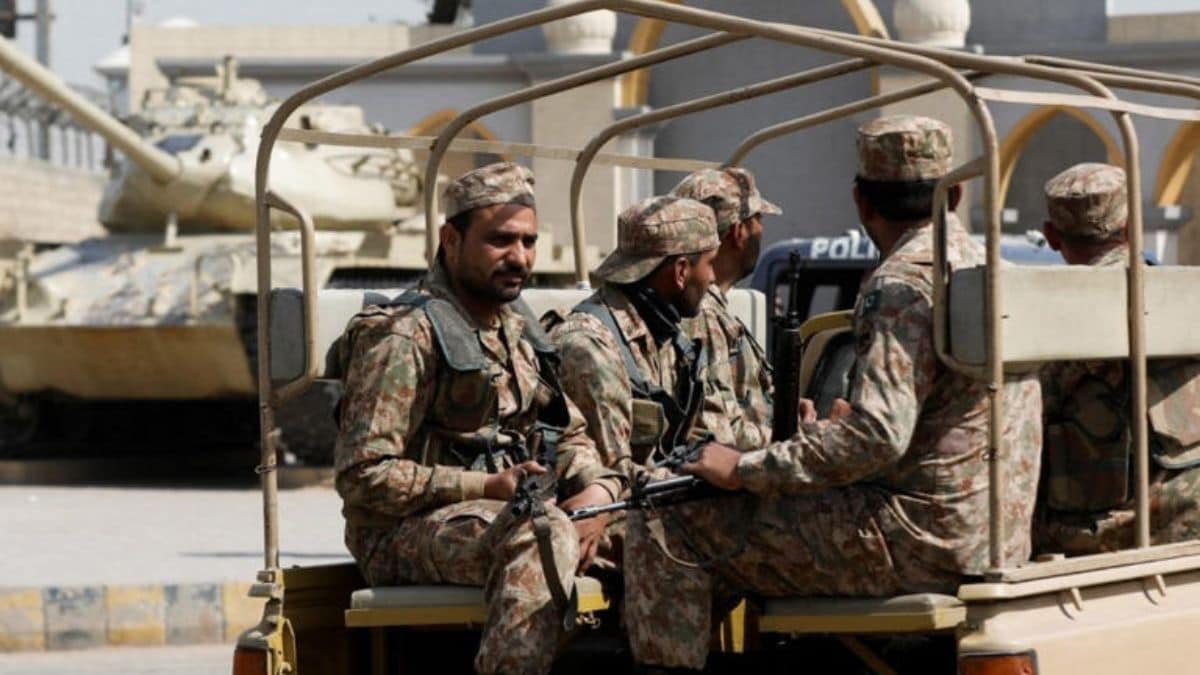At least seven people were killed and several injured after gunmen opened fire on a protest in Pakistan’s Khyber Pakhtunkhwa. Locals were demonstrating against counter-terror operations following a girl’s death in a mortar strike.
read more
Unknown gunmen opened fire on a protest in Pakistan’s Khyber Pakhtunkhwa province on Sunday, killing at least seven people and injuring several others, news agency PTI reported, citing officials.
The demonstration was staged in front of a Pakistani military installation and was held against ongoing counter-terrorism operations in the region. The protest over the killing of a minor girl in Tirah took a violent turn.
Hundreds of tribal residents gathered outside the Brigade Headquarters in Bagh-Maidan Markaz early Sunday morning, carrying the body of a young girl reportedly killed in a mortar strike a day earlier in the Darbar area of Peer Mela, Zakhakhel.
Angry tribal locals also placed the girl’s body outside the Momand Ghuz security checkpoint in protest, demanding accountability for the mortar attack.
Suhail Afridi, special assistant to the Khyber Pakhtunkhwa chief minister, confirmed that the protesters were fired upon by terrorists, leaving three people dead and eight injured.
Pak’s deep-rooted security challenge
Terrorism remains a major security threat in Pakistan, particularly in the provinces of Khyber Pakhtunkhwa and Balochistan. Ironically, while Pakistan presents itself internationally as a victim of terrorism, it has long been accused of supporting extremist groups like Jaish-e-Mohammed and Lashkar-e-Taiba, especially in their operations against India.
Military operations and human rights concerns
Inside its borders, Pakistan has waged several large-scale military operations—such as Zarb-e-Azb and Radd-ul-Fasaad—to dismantle militant networks. Yet groups like Tehrik-i-Taliban Pakistan (TTP), Islamic State (IS) affiliates, and Baloch separatist outfits remain active, frequently targeting civilians, security forces, and critical infrastructure.
The state’s heavy-handed counter-terror tactics have led to serious human rights abuses, including enforced disappearances, extrajudicial killings, and unlawful detentions. These actions have deepened mistrust among citizens and eroded confidence in the rule of law.
Persistent militancy and regional hotspots
The tribal belt near the Afghan border continues to be a hub of militant activity. Meanwhile, Balochistan has witnessed an uptick in violence, often directed at Chinese projects tied to the China-Pakistan Economic Corridor (CPEC). Though urban centers like Karachi and Lahore have seen a relative decline in attacks, the threat of sleeper cells and lone-wolf actors remains.
Worsening rights crisis in Balochistan
In Balochistan, the security situation is compounded by long-standing grievances over political marginalisation and economic exploitation. The region has become a focal point of allegations regarding systemic human rights violations, particularly targeting students, activists, and political dissenters.
Human rights watchdogs, including Amnesty International and Human Rights Watch, have documented repeated cases of torture, arbitrary arrests, and extrajudicial killings—often attributed to state agencies operating without accountability.
Enforced disappearances and public outrage
Families of the disappeared frequently organise sit-ins and protests, displaying photographs of their missing loved ones and demanding justice. Thousands of cases have been reported to Pakistan’s Commission of Inquiry on Enforced Disappearances, with Balochistan accounting for a disproportionate share. However, few have been resolved, and the perpetrators rarely face consequences.
Suppressing dissent through fear
Activists argue that these disappearances are part of a broader strategy to suppress the Baloch nationalist movement and silence dissent against controversial state-led projects like CPEC. The lack of judicial oversight, transparency, and accountability has only widened the trust deficit between the Baloch people and the federal government—fuelling further instability in an already volatile region.
